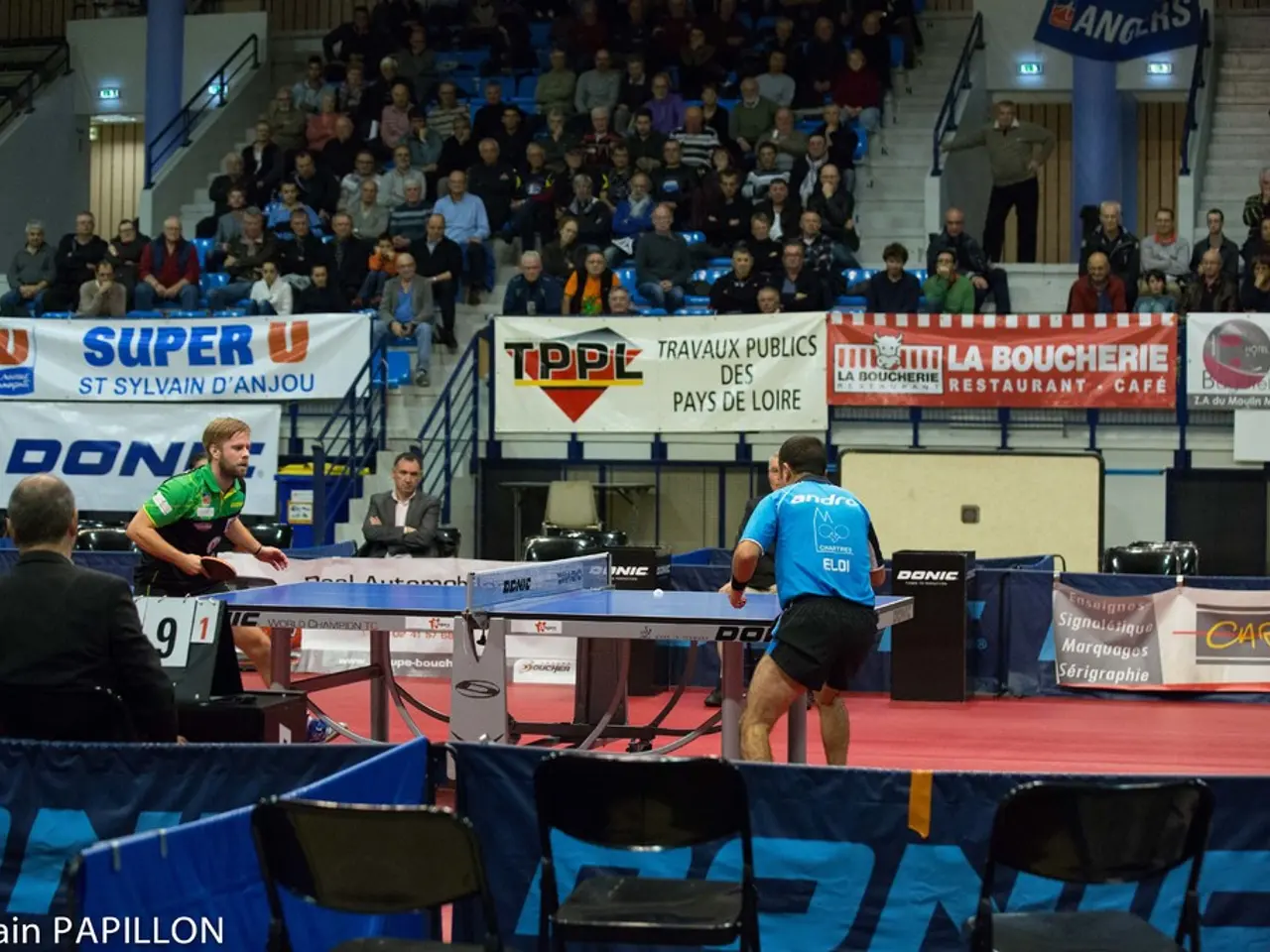Unruly crowds at airports to online harassment: Examining the costs of China's harmful sports fan behavior
In China, the issue of toxic fandom in sports and entertainment is gaining attention, with regulators and athletes working together to address a series of high-profile incidents. This movement comes in response to incidents such as jeers at the Paris Olympics, airport mobs, and hotel-room trespass, often directed at Chinese athletes like table tennis stars Wang Chuqin and Sun Yingsha.
Xiao Yan, who established an Instagram page in 2022 to support these athletes, has personally experienced the toxicity. As Wang Chuqin and Sun Yingsha rose in the rankings, Xiao Yan noticed an increase in rude comments on her posts, with the comments making fun of their table tennis results and using derogatory names. Xiao Yan was also targeted with personal insults, being called an idiot for supporting these athletes.
China's approach to combating toxic fandom within organized fan communities, known as "fan quan," is multifaceted. Government and cyberspace authorities are urging social media platforms to close fake accounts impersonating athletes and coaches, dismantle irrational fan groups and forums, and implement stricter content moderation. Platforms are being penalized if they fail to manage toxic behavior effectively.
Legal actions are also being taken. Courts have prosecuted individuals for offenses such as "picking quarrels and provoking trouble" related to online harassment and false accusations against public figures or institutions, as seen in cases involving panda conservation staff targeted by fan mobs.
High-profile athletes like table tennis star Fan Zhendong have publicly condemned toxic fan behavior, calling for love, passion, and unity rather than conflict among fans. The problem of toxic fandom is being highlighted by state media as part of broader cyber clean-up efforts to raise public awareness and stigmatize abusive behavior.
Despite these measures, challenges remain due to enforcement difficulties, anonymity of online platforms, and fan resistance. Some experts and fans argue that legal punishments are the only real deterrent to toxic fandom because social media bans or mutes can be circumvented by creating new accounts. Additionally, there is concern about the quasi-organizational nature of fan communities making toxic fan culture entrenched and hard to fully eradicate.
Xiao Yan's experience reflects a broader trend of toxic fandom in sports and entertainment. Despite episodic clean-ups, fans and analysts say platform bans are easily dodged. China's approach combines regulatory oversight of cyberspace, legal accountability, public condemnation by celebrities, and media advocacy to combat toxic fan culture within "fan quan," but enforcement and cultural change remain ongoing challenges.
[1] China Daily. (2023, March 14). China cracks down on toxic fandom in sports, entertainment. Retrieved from https://www.chinadaily.com.cn/a/202303/14/WS63f3659aa3106b873434a5a0.html
[2] South China Morning Post. (2023, February 27). China's panda conservation staff targeted by fan mobs in online harassment campaign. Retrieved from https://www.scmp.com/news/china/society/article/3182832/chinas-panda-conservation-staff-targeted-fan-mobs-online
[3] Xinhua Net. (2023, February 18). Chinese table tennis star Fan Zhendong condemns toxic fan behavior. Retrieved from http://www.xinhuanet.com/english/2023-02/18/c_138014476.htm
[4] China Daily. (2023, March 10). China's media campaigns target toxic fandom in sports, entertainment. Retrieved from https://www.chinadaily.com.cn/a/202303/10/WS63e1d94aa3106b873434a58c.html
[5] South China Morning Post. (2023, February 25). Toxic fan culture in China's sports world is deeply entrenched and hard to eradicate. Retrieved from https://www.scmp.com/sport/tennis/article/3182738/toxic-fan-culture-chinas-sports-world-deeply-entrenched-and-hard-eradicate
- Xiao Yan's Instagram page, dedicated to supporting athletes, has been subjected to toxic comments, with users deriding the achievements of table tennis stars like Wang Chuqin and Sun Yingsha, and even labeling Xiao Yan an idiot for her support.
- In addition to addressing toxic fandom in sports, Chinese authorities are tackling the issue in entertainment and general news, seeking to dismantle irrational fan groups, close fake accounts, and increase content moderation on social media platforms.
- Apart from legal actions against individuals engaging in online harassment, sports stars like Fan Zhendong are using their public platforms to condemn toxic fan behavior, advocating for a culture of love, passion, and unity instead.







